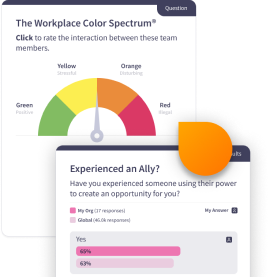
Using Foreign Language in the Workplace
Allowing co-workers to speak languages other than English at work raises questions about inclusion. Often, individuals naturally choose their most fluent language without intending to exclude or 'gossip.' It's simply the most efficient way to communicate. However, for English-speaking bystanders, this can be unsettling. It's not always about the content of the conversation, but rather the feeling of exclusion. When two people converse in a language you don't understand, it's easy to feel like an outsider in the workplace.
Microlesson DescriptionThis lesson provides guidance on using foreign languages in the workplace and instructs employees on how to speak up when they are feeling excluded. Legally speaking, employees are allowed to converse with one another in whichever language they please. It’s important to empower employees to be their most authentic selves at work, but it can have negative consequences for workplace culture and perceptions of inclusion.
Key Concepts- Why it's usually best to speak in a language that most of the people within the area can understand.
- A reminder that people sometimes speak in the language that is easiest and most efficient for them.
- How to communicate with each other if one person is feeling uncomfortable and want to participate in the conversation.
Microlesson Features
- Employee sentiment pulsing questions that provide leaders with insights into their workforce's core cultural competencies
- Emtrain's Expert Answers tool, enabling employeees to submit anonymous questions about sensitive issues.
- Rich, contemporary video scences illustrating key concepts through realistic scenarios
- A data driven, skill-based approach to eLearning that establishes a shared language for employees.



